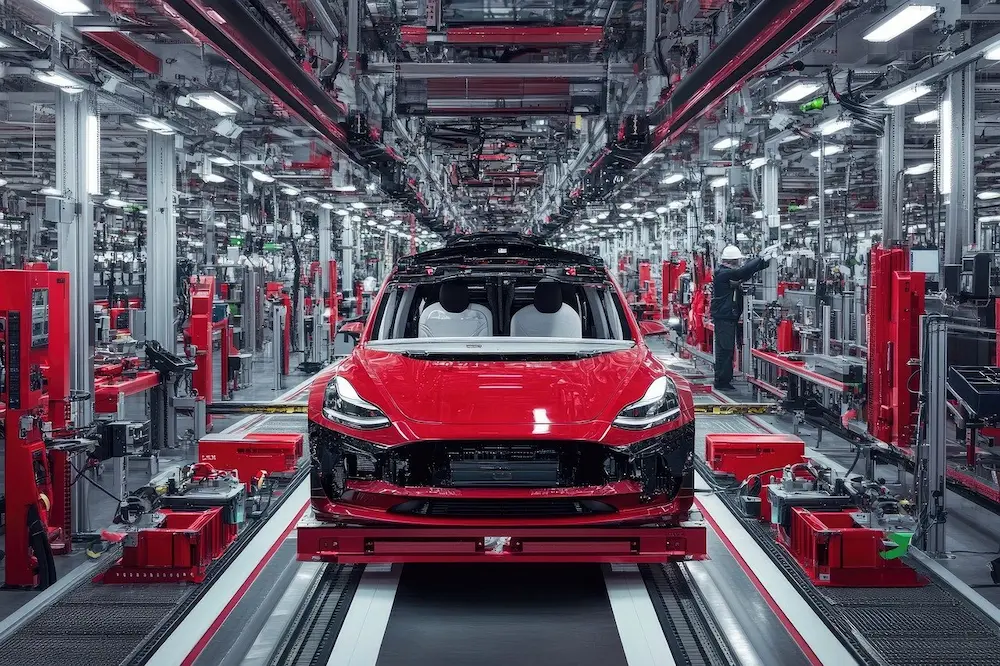The automotive industry has seen great advancements in car design, materials used in manufacturing vehicles, and the use of technology to design all parts of the vehicles, including the fastening systems. The industry advances progressively, so the requirements for improved fastening solutions must do the same.
Agrati is a leading fastener solution partner that has been working hard to help its clients navigate the changing nature of the automotive industry in this way.
Evolving Trends in Automotive Fastening
The automotive fastening market has seen some drastic changes, including the change in materials from heavy steel structures to lightweight metals and the increasing usage of electronics in production
Automobile manufacturers are turning to lightweight composites and electric vehicle platforms, which require high-performance fastening solutions to provide strength without adding mass.
Hedging this growth is the need for appropriate fasteners that competently address the peculiarities of use for EVs.
The Role of Precision and Efficiency
As much as advanced technology is known in vehicle manufacturing, timely and accurate fastening must be emphasised. The technology formed by streams of fastening is intended to shorten the manufacturing time while increasing a vehicle’s endurance and dependability.
Another area that has seen increased output due to Agrati’s high commitment to precision fastening is that it defines how components are joined or fastened to become stable in various circumstances for the subjectivity of vehicle safety, performance, and durability.
This has been achieved by an effective combination of innovation and efficiency practices to ensure that the company’s fastening technologies offer better production while simultaneously providing better quality products that make the vehicles safer and more reliable.
Innovations in Materials for Fastening Systems
The changes that have transformed the production of fastening systems have included numerous advancements in the material. For example, fibre-reinforced composites and high-strength alloys have generated effective fastening systems that are durable yet lightweight.
These innovations are important in achieving a better fuel economy and meeting the world’s sustainability objectives. These material changes must be brought into focus to ensure fastening systems are compatible with these new materials and perform optimally.
Agrati’s Contribution to the Future of Fastening
Agrati has been at the forefront of the development of fastening technologies. These pertain primarily to the issues of electrification and sustainability, to which the company commits large amounts for further research and development.
In this way, Agrati guarantees that automotive manufacturers can count on reliable partners while attending to a constantly changing environment. They are pioneers in the industry because they can design fasteners that work with new and emerging materials and technologies.
Challenges and Opportunities in Automotive Fastening
The automotive fastening industry has also encountered some difficulties in using materials that meet the needs of companies focused on sustainability and smart technologies. However, these challenges can promote innovation, too.
Companies that invest in research and focus on new ways to develop relevant solutions can serve the fastening industry. The proactive embracing of these opportunities, as is visible in Agrati, can help actualise various advancements in fastening technology.
Fastening the Future Together
Given the trends that currently characterise the automotive industry, the place of fastening systems gets even more important. Advances in fastening technologies guarantee that such vehicles are safer, more efficient and prepared for the future.
Companies like Agrati, which offer solutions that fit the general growth of the sector in terms of composite materials and technologies, facilitate such a turn. Based on the current trends, the development of automotive fastening will likely be a continuous process that will prompt the ever-increasing sophistication of vehicle design and performance.





